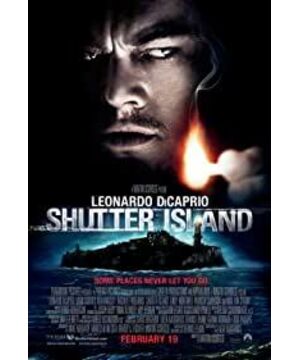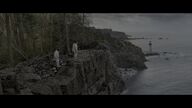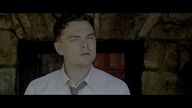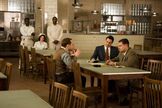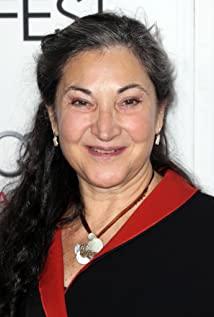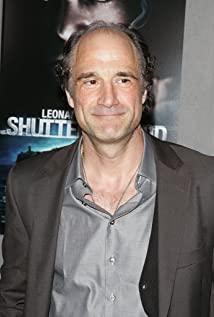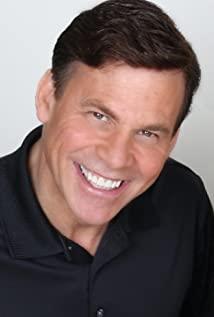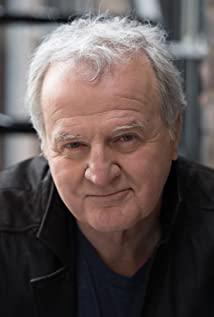SHUTTER ISLAND
Shutter Island
Roger Ebert • February 17, 2010
to play emerges from the trademark "Paramount" (Paramount) film company, doom melancholy tone Sonata, curtain "Shutter Island" had been opened. Needless to say, the film is also general melancholy doom. A horror movie must tighten the nerves of the audience from time to time in order to make us horrified. This is Martin Scorsese's work.
This is a chic ghost house movie, or to be precise-a ghost castle movie. In the film, the "Containment Island" is not close to Boston and is steep and rugged. It was originally a fortress during the Civil War but has now become a detention center for mentally ill criminals. Under the cloudy sky, the boats drove there, and the darkness from the ocean continued to invade, making visitors endlessly frightened. It felt like sailing to King Kong Island. Sitting on it is the chief of police-Teddy Daniels (Leonardo DiCaprio) and his assistant Chuck Aule (Marc Rufolo).
This is 1954. They were sent to investigate the disappearance of a child murderer (Emily Mortimer). This island is difficult to fly with wings. The prisoner was missing, why did you find the two detectives who were unknown? We should have asked so much, before the unknown prison walls appeared, at least before the two of them were introduced to Cowley, played by Ben Kingsley.
Cowley is the medical director of the prison, and his daunting charm owes much to Kingsley's superb acting skills.
Teddy obviously didn't realize that he was in deep trouble. "Teddy" (Teddy of Teddy Bear)-such a pure and innocent name, but involved in such a gothic plot. The film is adapted from a novel by Dennis Lachen. The story of director Scorsese this time seems to be plain: the female prisoner is missing, and Teddy and Chuck are trying to find her; however, the gray walls of the prison Banned their activities. The island’s facilities were originally prepared for commanders during the Civil War, but the style seems to be borrowed from Elgar Allen Poe’s novels.
(Translator's Note: Elgar Allen Poe: The style is weird and the theme is horrible. Some people say that modern detective novels started from him.)
Scorsese superbly disintegrated the reality piece. The flashbacks allude to Teddy's trauma in World War II. The prelude and aftermath of the war provided the source of the undercurrents of the classic "film noir". The medical term "major traumatic sequelae" was not used much later, but its symptoms were easy to recognize: rustic suits, dull ties, full of smoke, often wearing top hats and lowering the brim of the hat when it rains... …This is how they show confidence through appearance. DiCaprio and Rufolo both dressed up like this, and also in disguise, the role played by DiCaprio makes people feel a bit alive.
The film’s impact on the look and feel is particularly obvious. Everything in the film is revealed in an annoying way, predicting the hidden horrors. How did that woman escape from the locked cell? How did she unlock the ward? You know that the walls of this fortress can't even be beaten by cannons. And why does Cauley and his fierce-looking colleague Dr. Naehring (played by Max Feng Sudo, he once played a medieval knight playing chess with Death in "The Seventh Seal") always Evasive? The deputy warden pretends to be friendly, but why do people think he is not kind? (The deputy warden is played by John Courier. He plays the husband of Mo Ji in "Ice and Blood." You know how good others should be.) What is the secret behind the prison to let Teddy liberate the Nazi concentration camps? Suddenly flash back his memory?
Such a series of questions are touching the core of film noir: the protagonist of the film always has a gloomy past. Scorsese showed his actors a great noir film "Beyond the Whirlpool", which was taken in 1947, and the title fits the black theme: the characters in the film never appear innocent, they always have Unresolved problems, deeply buried wounds. So, yes, Teddy is more than just a neatly dressed policeman. But why do other people behave weirdly? Especially Kingsley, his smile often made people shudder.
The visual effects of "Bounded Island" are very exciting. Another movie that Scorsese gave to the actor team was Hitchcock's "Victorius". In this film, we also felt the lingering sound of the actor's fear of heights. The escaped female convict may hide in a cave in a cliff, or hide in a lighthouse, which requires crossing dangerous areas, over straight waterfalls, and large waves hitting the rocks below. A hurricane is about to make landfall, the light in the sky diminishes, and the sound of the wind is sad. As they said, it was a dark rainy night. And this is what this film wants to express: the environment, the unknown signs, Teddy’s fading self-confidence and even his identity... All this is due to the flawless director skills, Scorsese wrote in multiple voices Gorgeous symphony, all of this is to awaken the fear in your heart.
You may have read a lot of film reviews, and they are complaining that the ending of "Bounded Island" is not very good, as if they came back to you all of a sudden. If you watch this film only once, that kind of uncertainty will hinder you, so you won't think this is a good film. I think it will be much better if I read it again. Some people may not make sense with this ending, even if the ending can make sense, the previous plot also does not make sense. So I asked myself: "Well, what should the ending be? How can it be satisfactory? Should I be one of those critics to guide the director on how to make a movie?"
Hey, I did think about it before. I think everyone who watches a movie thinks about it. But I don’t think about it at all for "Bounded Island", because it is natural, even if it seems obtrusive, think about it carefully. Also has its own intentions. People always tend to examine the past carefully and draw logical conclusions, but when your past is a mess, what should you do? What if Cowley and his weird men hid something? What if the narrative of this movie is not reliable? What if this movie is not an omniscient perspective, but is actually a splicing of multiple perspectives? Where will these take us? What does all this mean?
We are asking these questions, Teddy, and also wondering.
Translated from: http://rogerebert.suntimes.com/apps/pbcs.dll/article?AID=/20100217/REVIEWS/100219980/1023
View more about Shutter Island reviews


